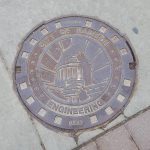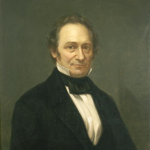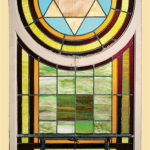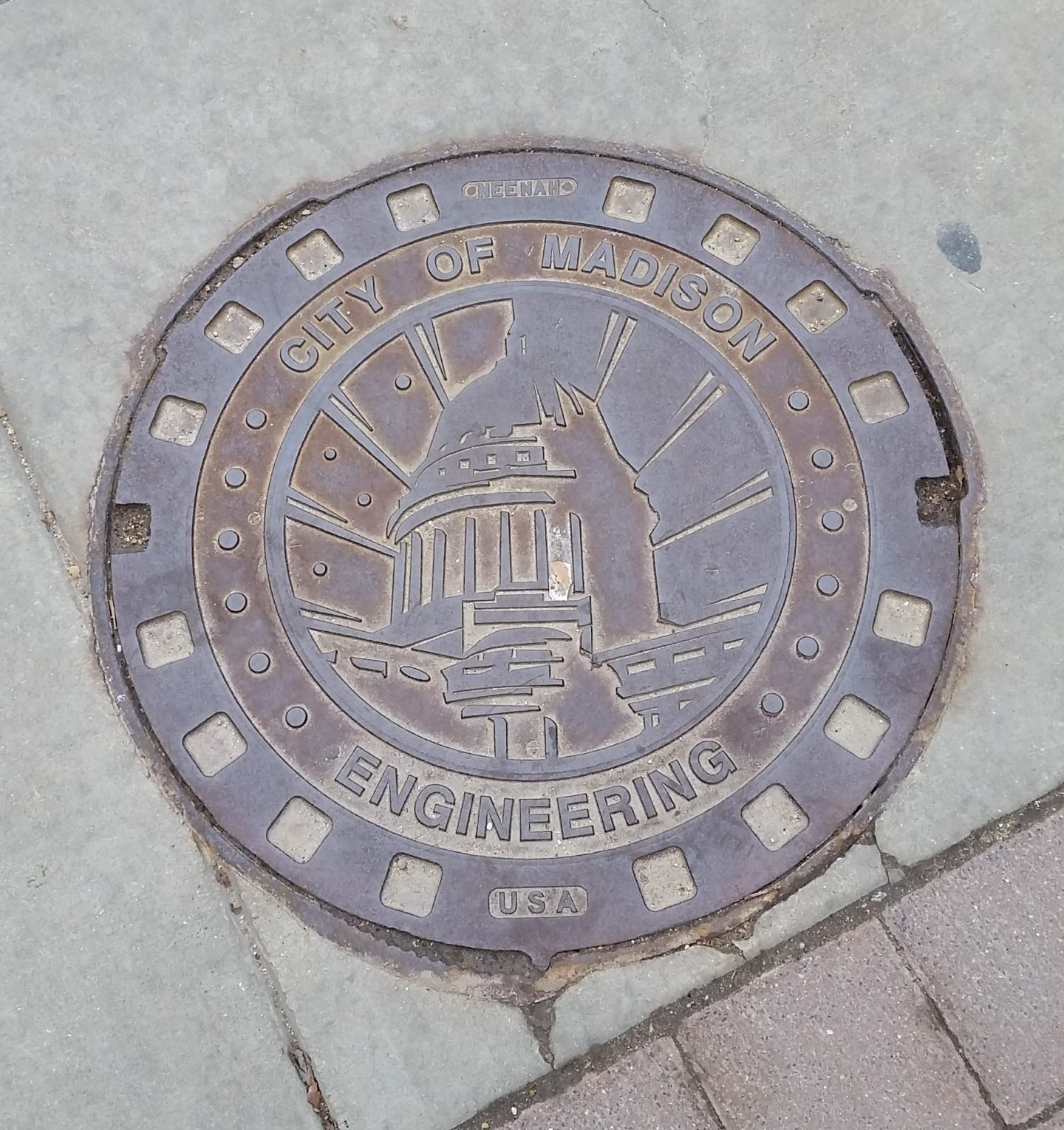
Since opening in 1904, the Neenah Foundry has earned a worldwide reputation for producing manhole covers. Manhole covers are removable lids fitted for tunnels large enough for people to access underground sewer and storm water systems. Made from strong and long-lasting cast grey iron, manhole covers weigh 250 pounds on average and have a diameter between 22 and 36 inches.[1] The covers rest on a recessed rim, keeping the cover flush to the ground while preventing it from falling through the opening. Since covers are too heavy to lift, their round design allows users to roll them where needed.
The Neenah Foundry produces manhole covers using cast iron techniques developed three centuries ago in England. In 1709, Abraham Darby developed an iron smelting technique using coke, a refined coal, making iron production more efficient. This alteration ushered in the beginning of the Industrial Revolution, forming a lasting tradition of iron smelting evident in the manholes we walk and drive over every day.
Originally called Aylward Plow Works, the Neenah Foundry’s proximity to the Port of Green Bay and the Great Lakes was instrumental to its early success. The lakes provided transportation access to raw materials such as coal, used to fire the cupola furnaces, the Swedish pig iron, a crude form of iron used to make steel, and coke.[2] The region also supplied important materials such as sand, which is essential for mold making.
Written by Keith Kaziak, September 2021.
FOOTNOTES
[1] Mimi Melnick, Manhole Covers (Cambridge, MA: MIT Press, 1994): 12, 14.
[2] Neenah Foundry Company. From Plowshares to…, (Pamphlet, Neenah, WI: Neenah Foundry Company, 1972): 2.
RELATED STORIES

An Iron Kinship: Abraham Darby and William Aylward Sr.
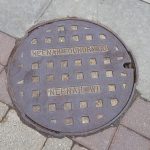
From the Fox River Valley to the Windy City: The Roaring Twenties and the Neenah Foundry
